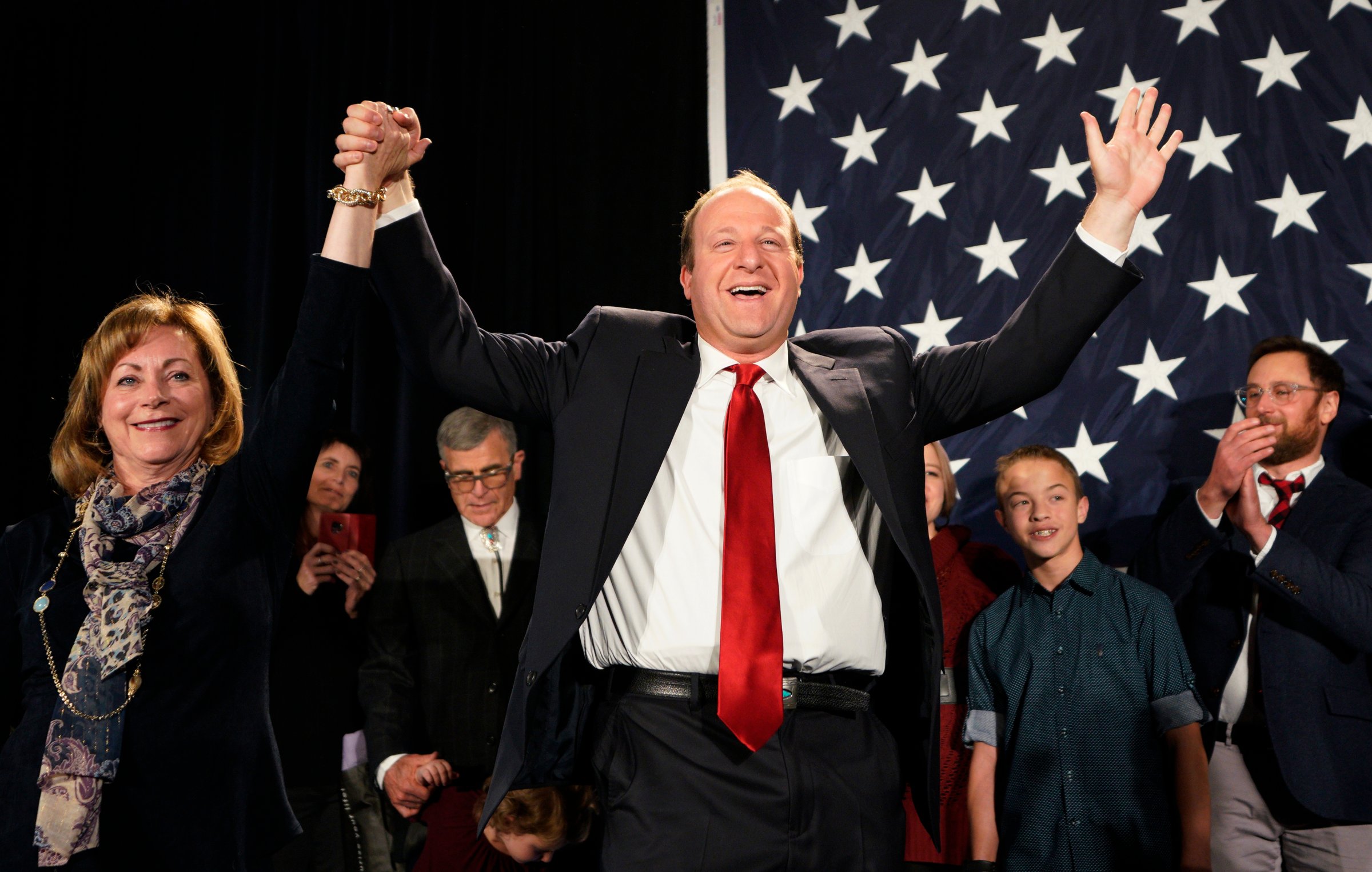
Women, minorities and LGBTQ individuals are still underrepresented in U.S. government. But the 2018 midterm elections made some headway toward achieving equality for those groups.
Democrat Jared Polis became the first openly gay man elected governor after winning Colorado’s gubernatorial election. Democrat Sharice Davids became the first Native American woman elected to Congress. Republican Marsha Blackburn became the first female senator from Tennessee. Republican Kristi Noem became South Dakota’s first female governor.
Other candidates who could have possibly made history fell short. Democratic Florida gubernatorial candidate Andrew Gillum, who would have become Florida’s first black governor, lost to Republican Ron DeSantis. Republican Eddie Edwards could have become New Hampshire’s first black congressman, but lost to Democrat Chris Pappas, the state’s first openly gay member of Congress.
TIME looked at races for state governors, U.S. Senate and U.S. House of Representatives. Here are the candidates in those races who made — and still could — make history.
These candidates just made history
Kyrsten Sinema
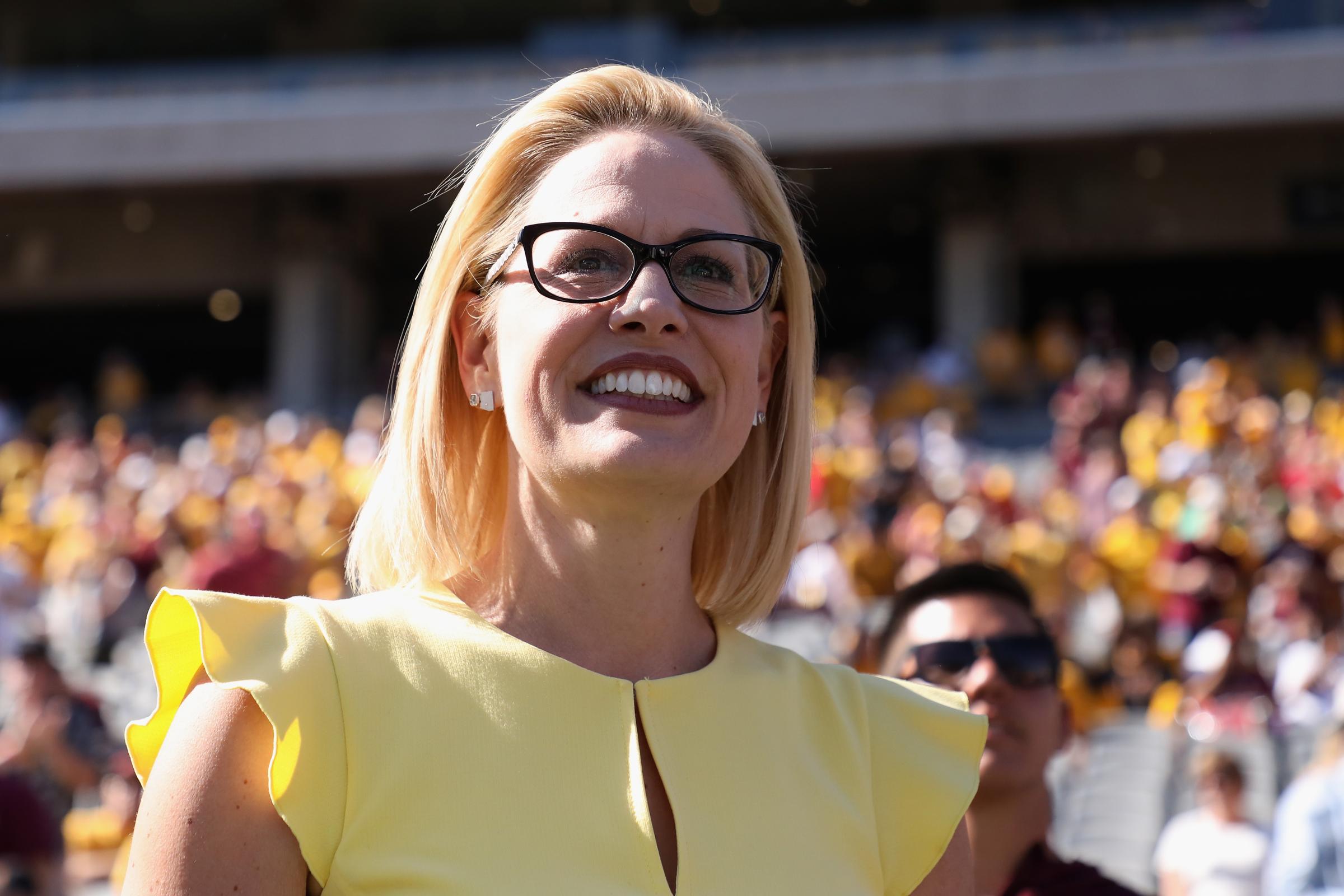
Became the first female senator from Arizona and the first openly bisexual senator.
Democrat Kyrsten Sinema defeated Republican Martha McSally in the race for the Arizona senate seat vacated by retiring Republican Jeff Flake. Sinema, a member of the U.S. House who could also become the first openly bisexual senator, is a more moderate Democrat who opposes Medicare for All and abolishing the Immigration and Customs Enforcement Agency.
Arizona last elected a Democratic senator in 1994.
Jahana Hayes

Became the first black woman to represent Connecticut in Congress.
Jahana Hayes, who was named the National Teacher of the Year in 2016, won Connecticut’s 5th Congressional District seat in the 2018 midterms. She defeated Republican Manny Santos, the former mayor of Meriden, Conn., in the general election. She becomes the first black woman to represent Connecticut — and all of New England — in Congress. Republican Gary Franks became the state’s first black congressman in 1991.
During her campaign, Hayes candidly discussed growing up in poverty and how she became pregnant at age 17. Her platform included making college more affordable, supporting Medicare-for-All and expanding rights for Dreamers.
Kristi Noem
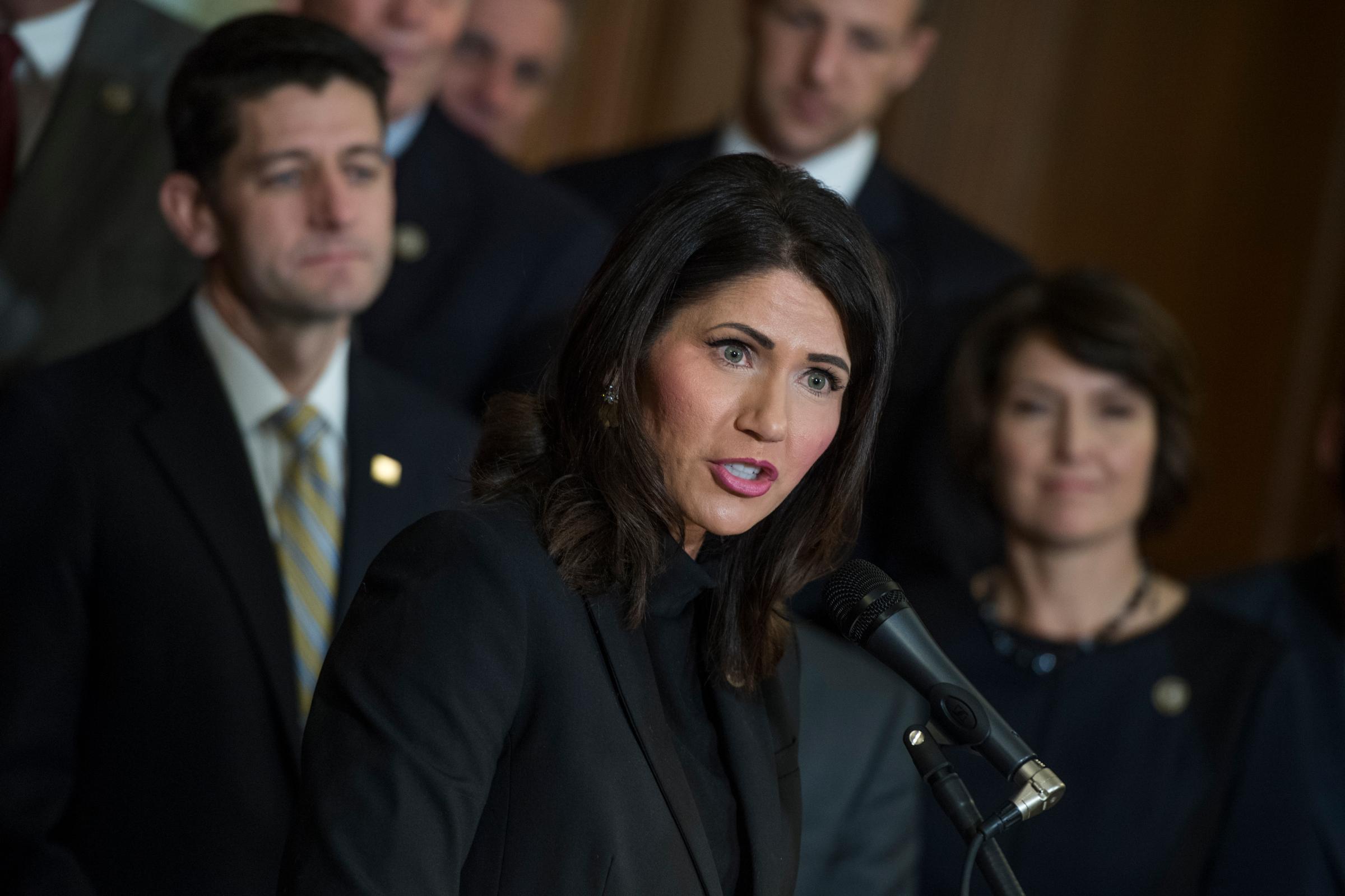
Became South Dakota’s first female governor.
Republican Rep. Kristi Noem won South Dakota’s gubernatorial election in the 2018 midterms, defeating Democrat Billie Sutton, the state senate’s majority leader. Her victory makes her South Dakota’s first female governor.
South Dakota has consistently elected Republican governors since 1978. Noem campaigned to improve the state’s economy, growing agriculture, and keeping the state free of income tax.
Michelle Lujan Grisham
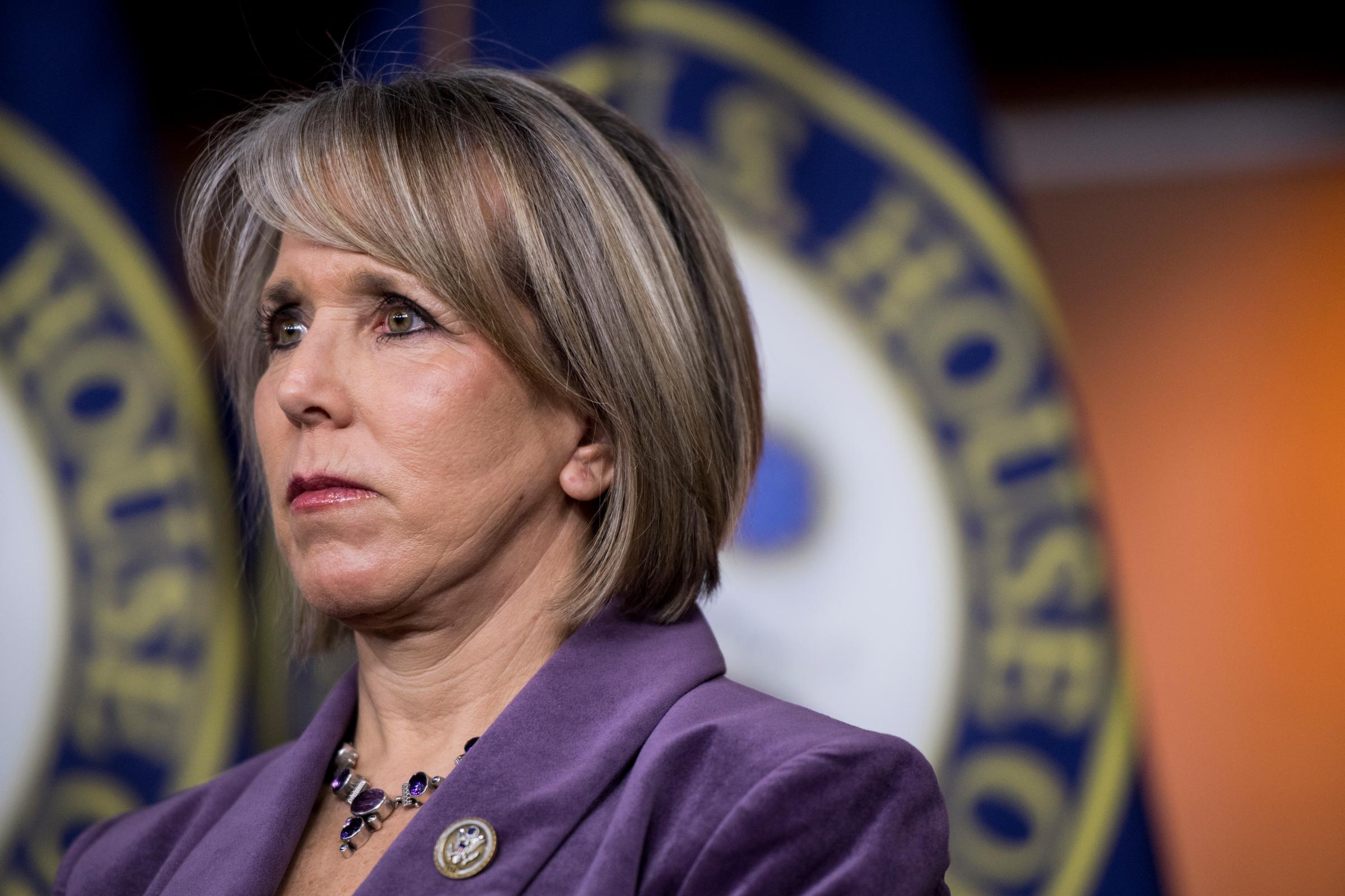
Became the first Latina Democratic governor in the U.S.
Michelle Lujan Grisham, currently a member of the U.S. House of Representatives, won the race for New Mexico’s governor, defeating Republican Steve Pearce, a member of the U.S. House of Representatives. She became the first Latina Democratic governor in the U.S. Her predecessor — Republican Susana Martinez —became the first Latina governor when she was elected governor of New Mexico in 2010.
Her campaign platform included supporting “Dreamers,” gun reform and making the state a leader in renewable energy.
Chris Pappas
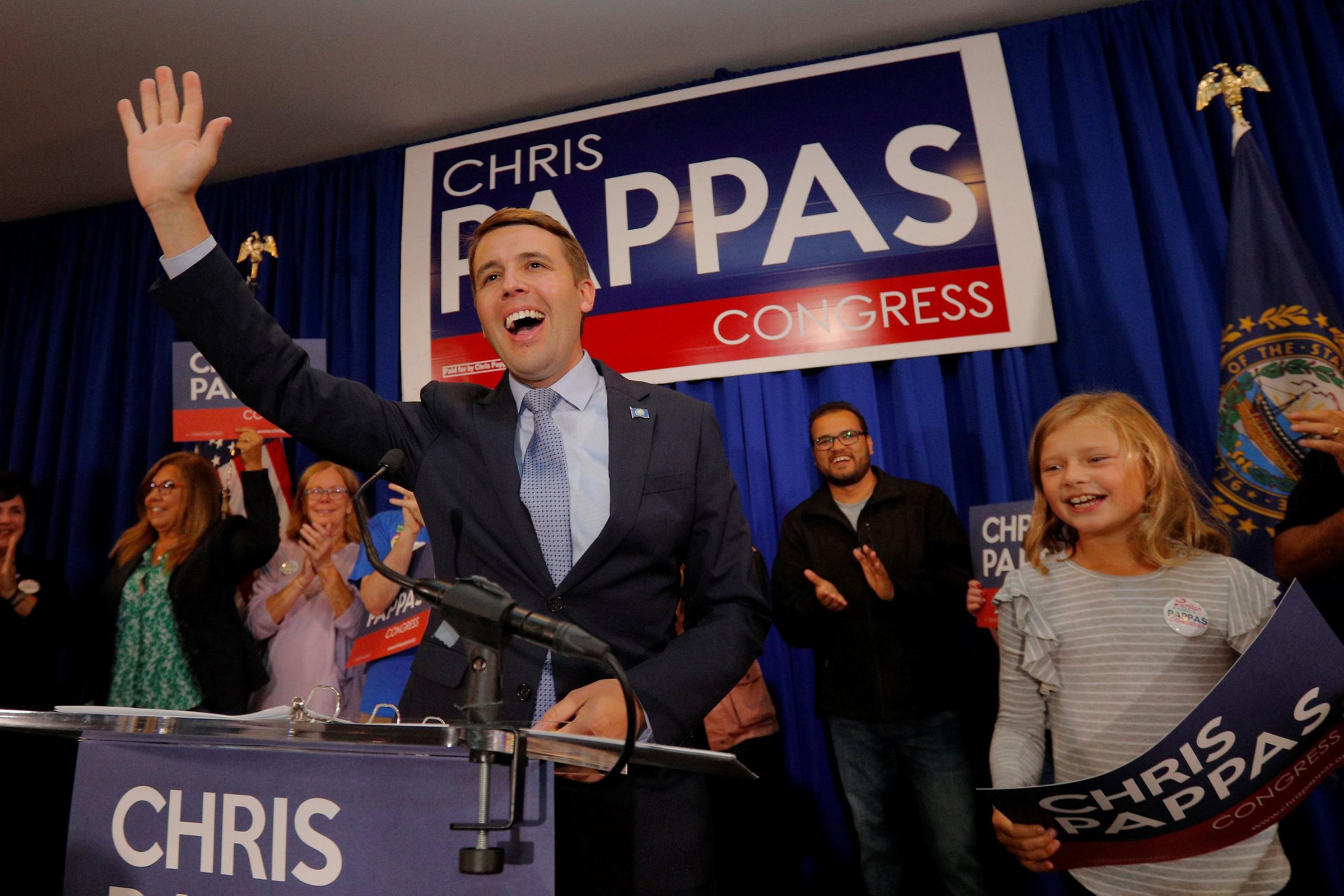
Became the first openly gay member of Congress from New Hampshire.
Chris Pappas, who currently serves on the New Hampshire Executive Council, won New Hampshire’s 1st Congressional District seat in the 2018 midterm elections. He defeated Republican Eddie Edwards, who would have become the first black congressman from New Hampshire. Pappas became the first openly gay member of Congress from New Hampshire.
The seat has alternated between Democrats and Republicans since 2003. Pappas’ platform included expanding the Affordable Care Act, protecting abortion rights and supporting universal pre-k and tuition-free public universities. If he wins, he’ll become the first openly gay member of Congress from New Hampshire.
Deb Haaland
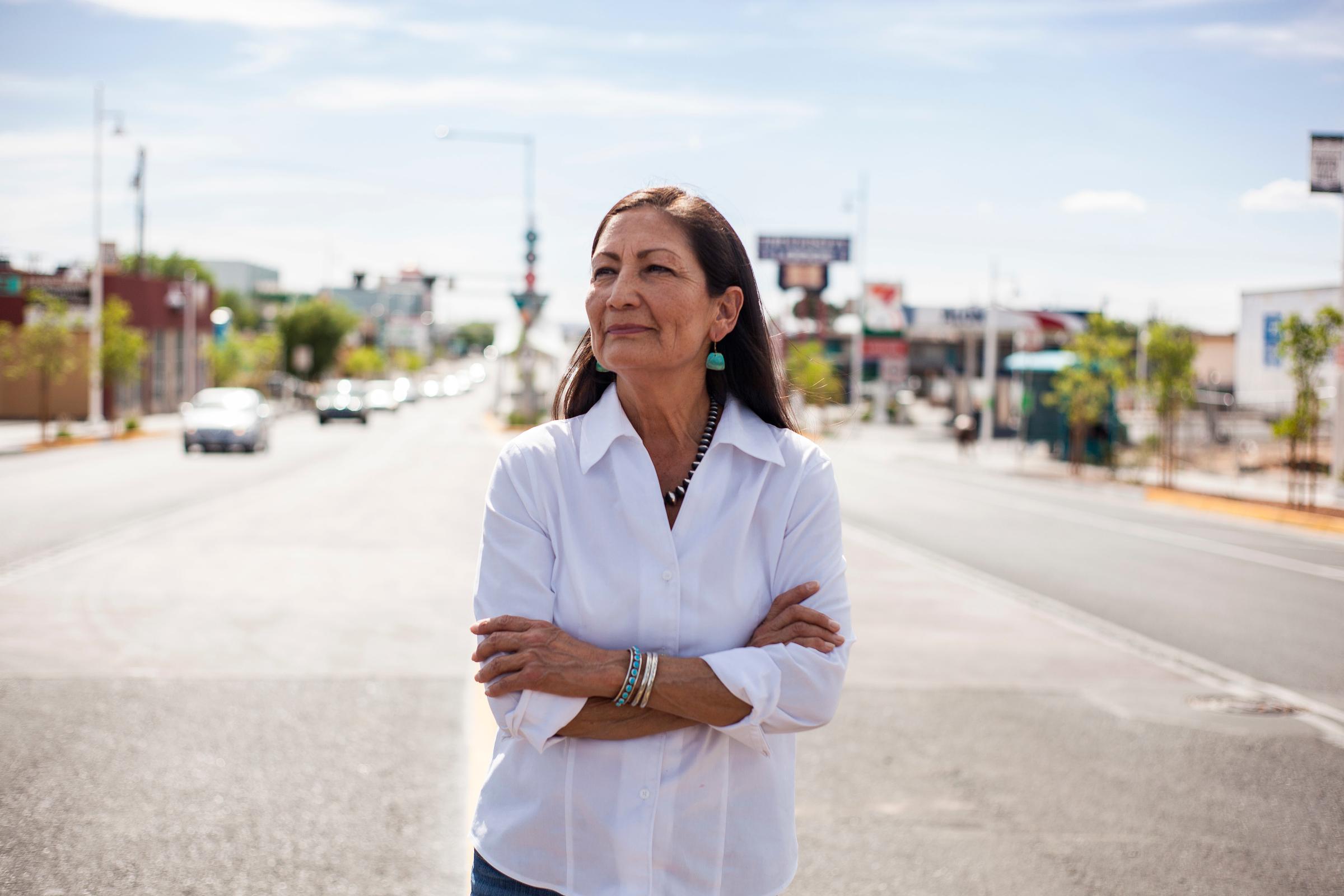
Become one of the first Native American women elected to Congress.
Deb Haaland, who used to chair New Mexico’s Democratic Party, won New Mexico’s 1st Congressional District in the 2018 midterm. She defeated Republican Janice Arnold-Jones, a former member of the state’s House of Representatives. Her platform included fighting for Medicare for All, expanding DACA and subsidizing early childhood care and education.
She became one of the first Native American women in Congress, a distinction she shares with Democrat Sharice Davids, who won the seat for Kansas’ 3rd Congressional District.
Sharice Davids

Became the first Native American women to serve in Congress and the first openly LGBT person to represent Kansas.
Democrat Sharice Davids, an attorney and a former MMA fighter, won the seat for Kansas’ 3rd District in the 2018 midterms. Davids, a member of the Ho-Chunk Nation of Wisconsin and an open lesbian, defeated Republican Rep. Kevin Yoder, becoming the first Native American woman to serve in Congress, as well as the first openly LGBT person to represent Kansas in Congress.
Her platform included fighting for tax cuts for the middle class, making college more affordable and supporting the expansion of Medicaid.
Jared Polis
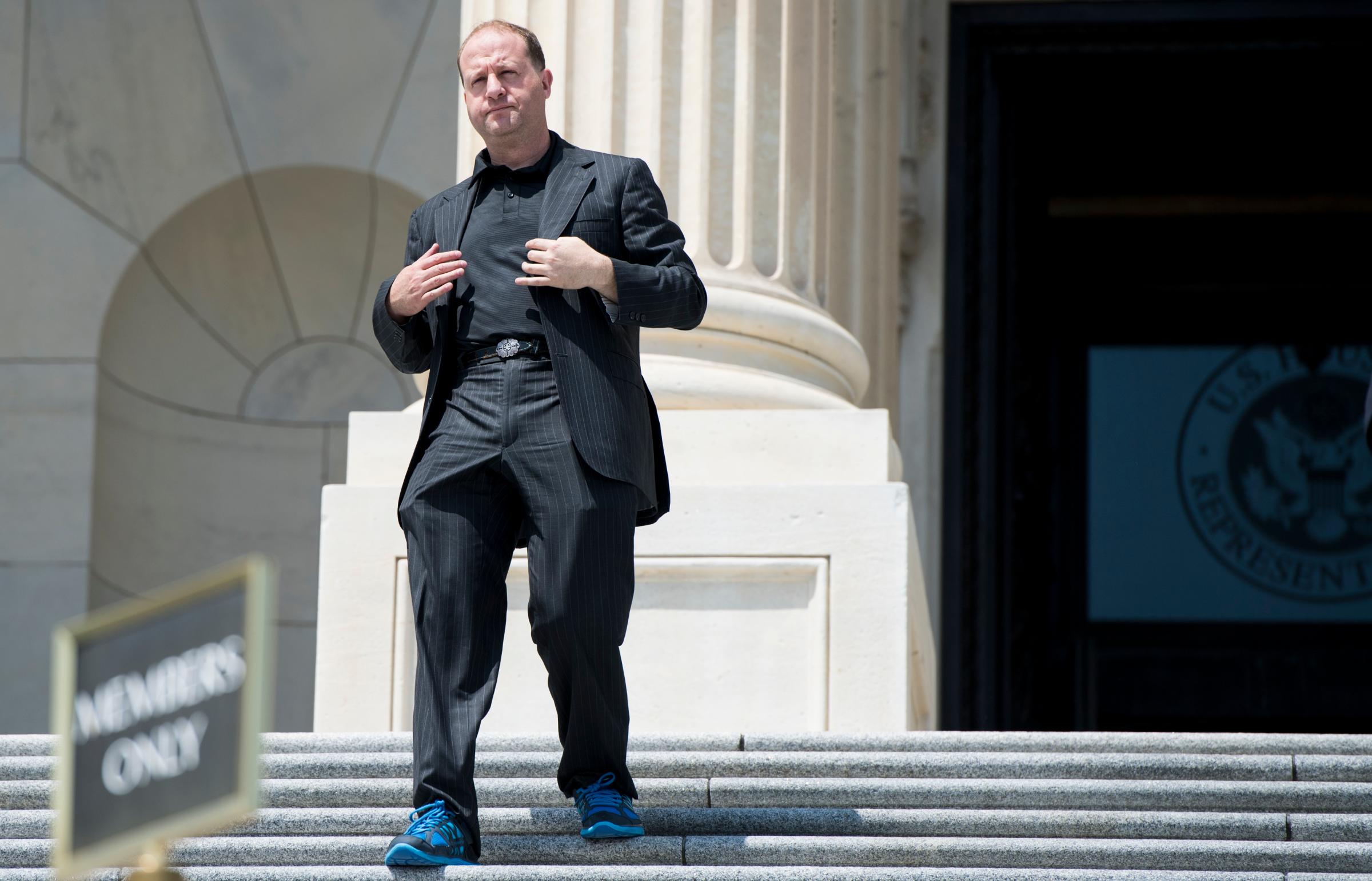
Became the first openly gay man elected governor in the U.S. (and first openly gay governor in Colorado).
Jared Polis, a member of U.S. House of Representatives, became the first openly gay man elected governor after winning the race for Colorado’s governor in the 2018 midterms. He defeated Republican Walker Stapleton, currently the state’s treasurer. Polis’ progressive platform included Medicare for All and universal kindergarten and pre-school.
Polis is also the first openly gay governor of Colorado. Since 1974, four out of five of the state’s governors have been Democrats.
Marsha Blackburn
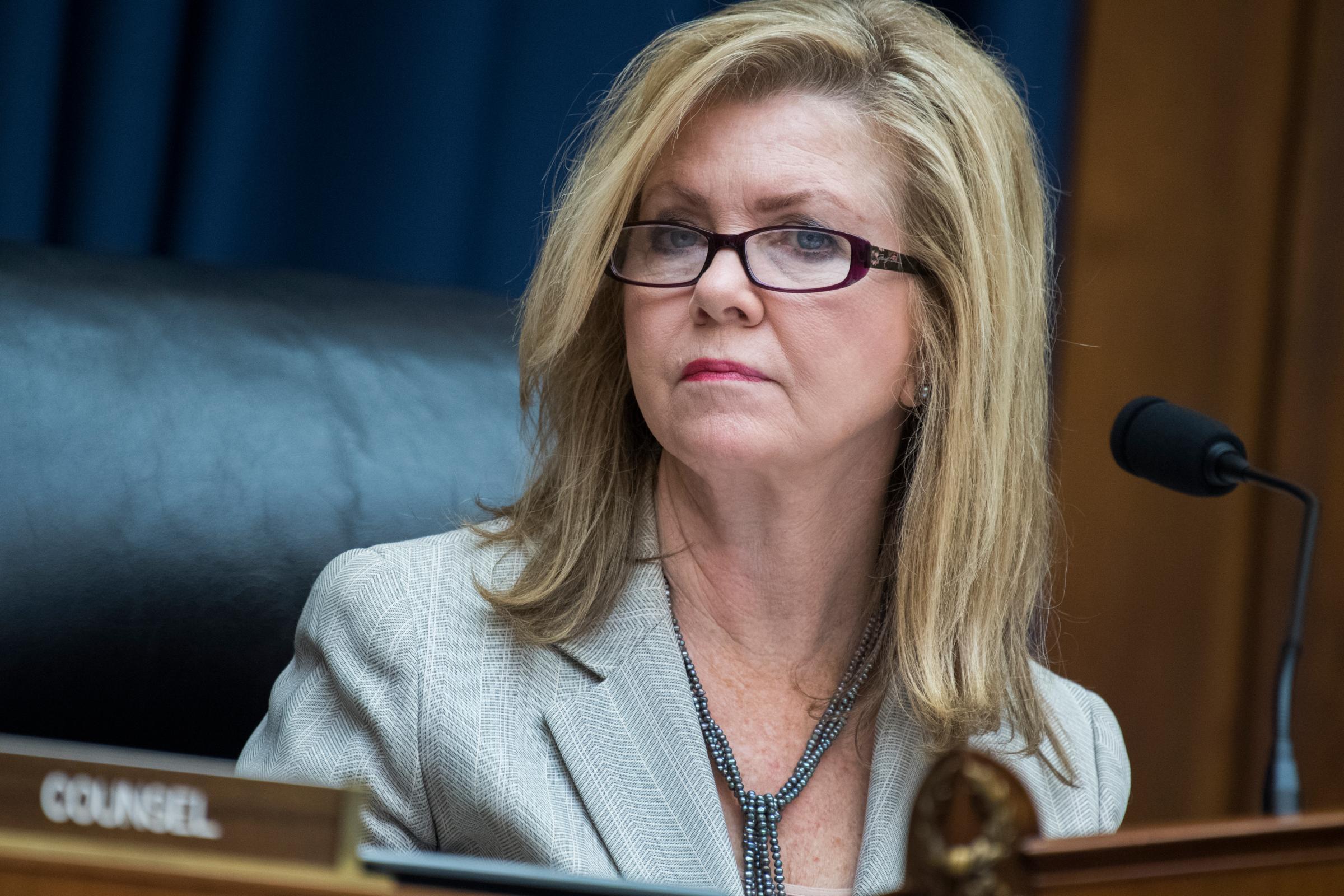
Became the first female senator from Tennessee.
Marsha Blackburn, currently serving in the U.S. House of Representatives, won a Tennessee senate seat in the 2018 midterms, replacing retiring Republican Sen. Bob Corker’s seat. Her platform included ending the Deferred Action for Childhood Arrivals (DACA), supporting President Trump’s border wall and repealing and replacing the Affordable Care Act.
She became the state’s first female senator. She defeated Democrat Phil Bredesen, the state’s former governor. Blackburn received support from President Trump.
Ilhan Omar

Became the first Somali-American in Congress.
Ilhan Omar, a member of Minnesota’s House of Representatives and the first Somali-American Muslim person to ever become a legislator, won Minnesota’s 5th Congressional District in the 2018 midterm elections, defeating Republican Jennifer Zielinski. Her platform included increasing the minimum wage, supporting Medicare for All and reforming the criminal justice system.
She became the first Somali-American in Congress. She’ll also become the first Muslim woman, along with Rashida Tlaib, who won Michigan’s 13th Congressional District.
Ilhan Omar and Rashida Tlaib
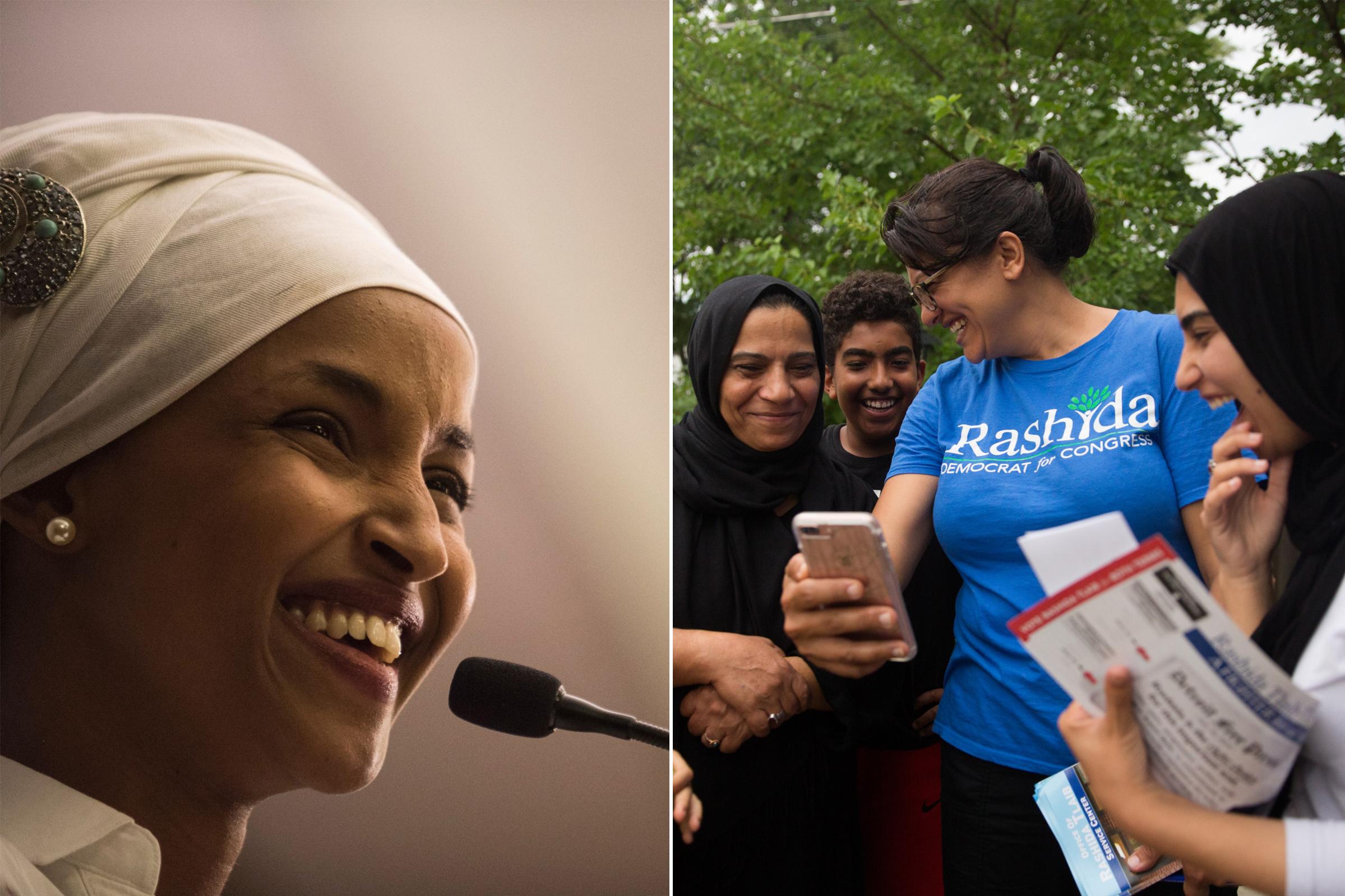
Became the first Muslim women in Congress.
Rashida Tlaib, a former state legislator, won the seat for Michigan’s 13th Congressional District after running unopposed. Her platform included supporting Medicare for All, a $15 minimum wage and immigration reform.
She will become the first Muslim woman in Congress with Omar.
Ayanna Pressley
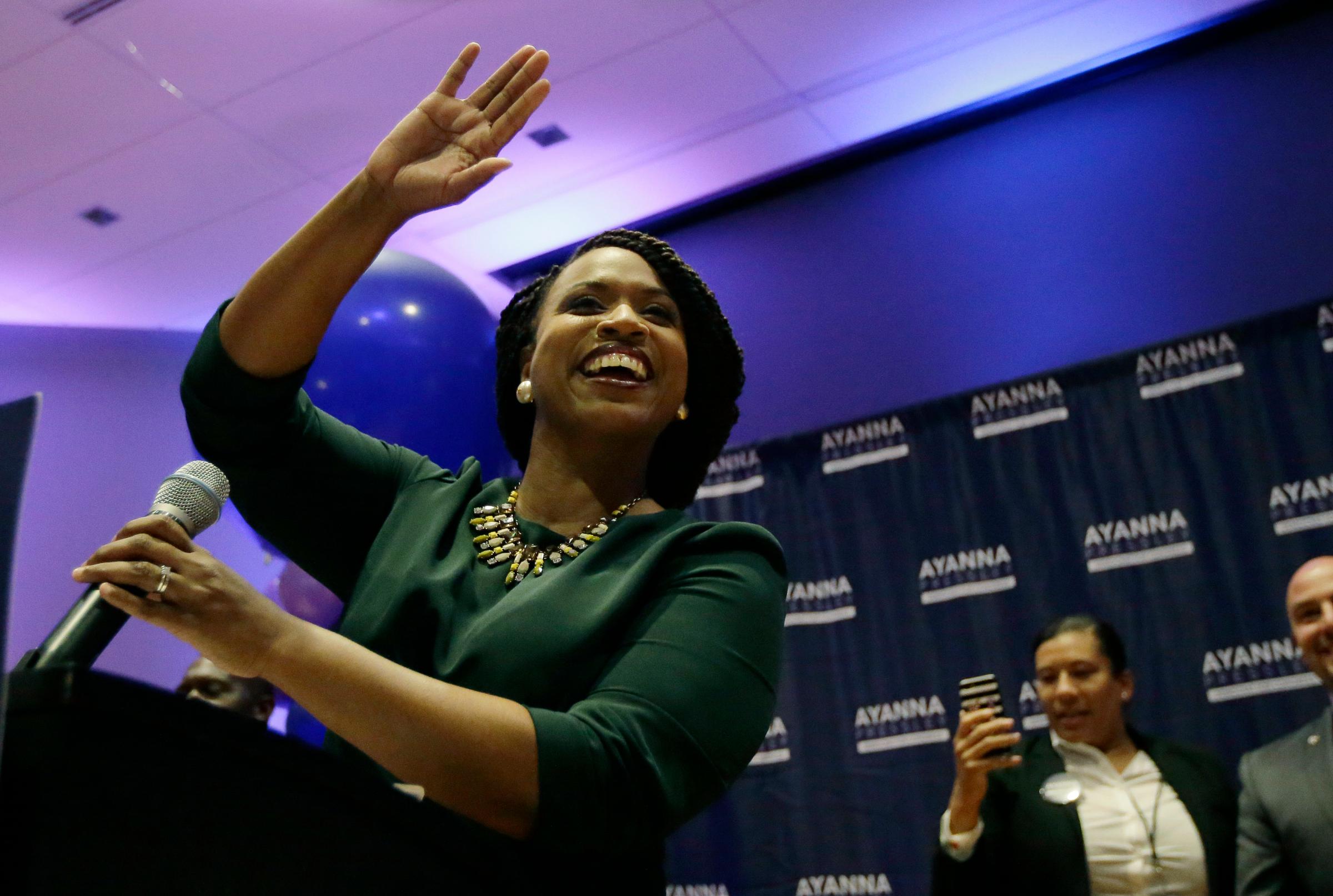
Became the first black Congresswoman from Massachusetts.
Ayanna Pressley, who made history as the first black woman to serve on the Boston City Council, became the first black Congresswoman from Massachusetts after winning the state’s 7th District seat in the 2018 midterm elections. She had no Republican challenger in her race in the heavily Democratic district.
She won the Democratic primary against 10-term incumbent Michael Capuano on Sept. 4. Her platform included defunding Immigration and Customs Enforcement, supporting Medicare for All and fighting to end gun violence.
Lou Leon Guerrero
Became the first female governor of U.S. territory Guam.
Lou Leon Guerrero, the current president of the Bank of Guam, became the first female governor of Guam after defeating Republican Lt. Gov Ray Tenorio in the 2018 midterm election. Guerrero won 50.7 percent of the vote, avoiding a runoff.
“We are extremely grateful for the opportunity given to us to make a positive change for all our people,” Leon Guerrero said, according to the Pacific Daily News.
Guam has been run by Republican governors since 2003. Guerrero’s platform included improving the Department of Revenue and Taxation and increasing trust in government, according to the Pacific Daily News.
More Must-Reads From TIME
- The 100 Most Influential People of 2024
- Coco Gauff Is Playing for Herself Now
- Scenes From Pro-Palestinian Encampments Across U.S. Universities
- 6 Compliments That Land Every Time
- If You're Dating Right Now , You're Brave: Column
- The AI That Could Heal a Divided Internet
- Fallout Is a Brilliant Model for the Future of Video Game Adaptations
- Want Weekly Recs on What to Watch, Read, and More? Sign Up for Worth Your Time
Write to Samantha Cooney at samantha.cooney@time.com